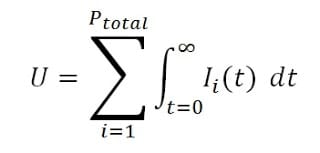the felicific calculus | 2016-10-12

- Intensity: How strong the pleasure?
- Duration: How long will it last?
- Certainty/Uncertainty: How likely is it that the pleasure will occur?
- Propinquity/Remoteness: How soon will it occur?
- Fecundity: Will the action be followed by similar sensations?
- Purity: Will the action NOT be followed by opposite sensations?
- Extent: How many people will be affected?
Take the balance which if on the side of pleasure, will give the general good tendency of the act, with respect to the total number or community of individuals concerned; if on the side of pain, the general evil tendency, with respect to the same community.
- What if the flavour is only to the liking of some friends?
- What if one friend has hyper-sensitive teeth but doesn’t like to talk about it?
- What if the bowls are small and there are no seconds?
- Intensity? “Was it good for you?”
- Duration? “Sorry… I’ll try to do better next time…”
- Certainty? “Was it good for you?”
- Propinquity? “Are you there yet!!??”
- Fecundity? “Wanna go again?”
- Purity? “Alright… good night… I guess…”
- How much does extent (read: number of people involved) change the level of hedons or dolors? “… … …”
See? Fun, right?
So, fecundity and propinquity are both delightful words here.
Fecundity tends to be used in terms of the readiness of a farmer’s field to produce crops or a woman to produce offspring. Using it to determine how likely pleasure is produced in an act is clever, if a little off-putting to me.
Propinquity (Lat. nearness) is a new one for me. It comes from social psychology and is supposed to be one of the contributing factors to personal attraction. The theory revolves around “like-attracts-like”: various similarities (living on the same floor of an apartment building; sharing political beliefs; working together) tend to draw people together. Often, propinquity can be coupled with and/or used in causal relationship with limerence, which is yet another lovely word defined thusly:
an involuntary interpersonal state that involves intrusive, obsessive, and compulsive thoughts, feelings, and behaviors that are contingent on perceived emotional reciprocation from the object of interest
So, apparently, there is a connection between being ‘near’ someone and developing an interest in them, however likely that interest is to be an unhealthy one. But wait… doesn’t absence make the heart grow fonder? I’m confused…
Propinquity, in Bentham’s usage, focuses on temporal nearness more than psychological or sociological nearness — how soon will this pleasure come?
I tend to think Utilitarianism and ethical hedonism are problematic in a variety of ways but I thought it would be fun to take a look at Bentham’s algorithm.
So far on the felicific calculus




